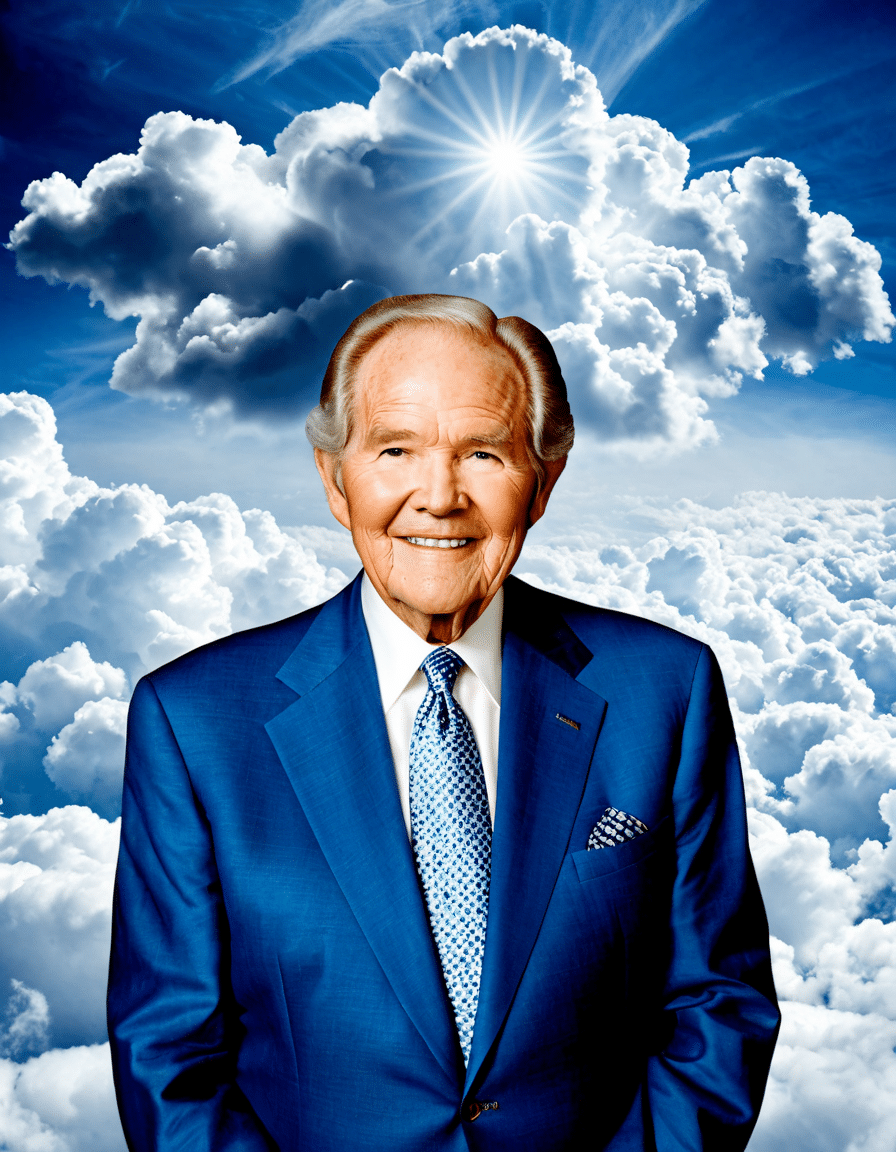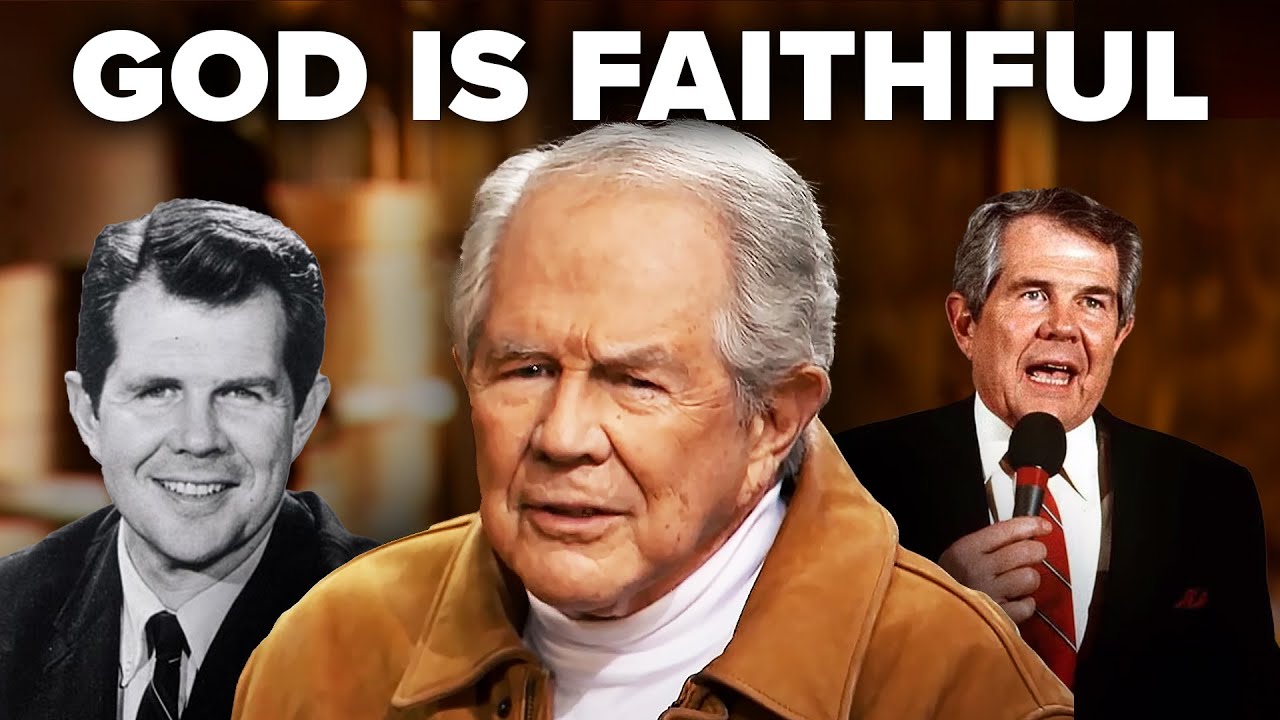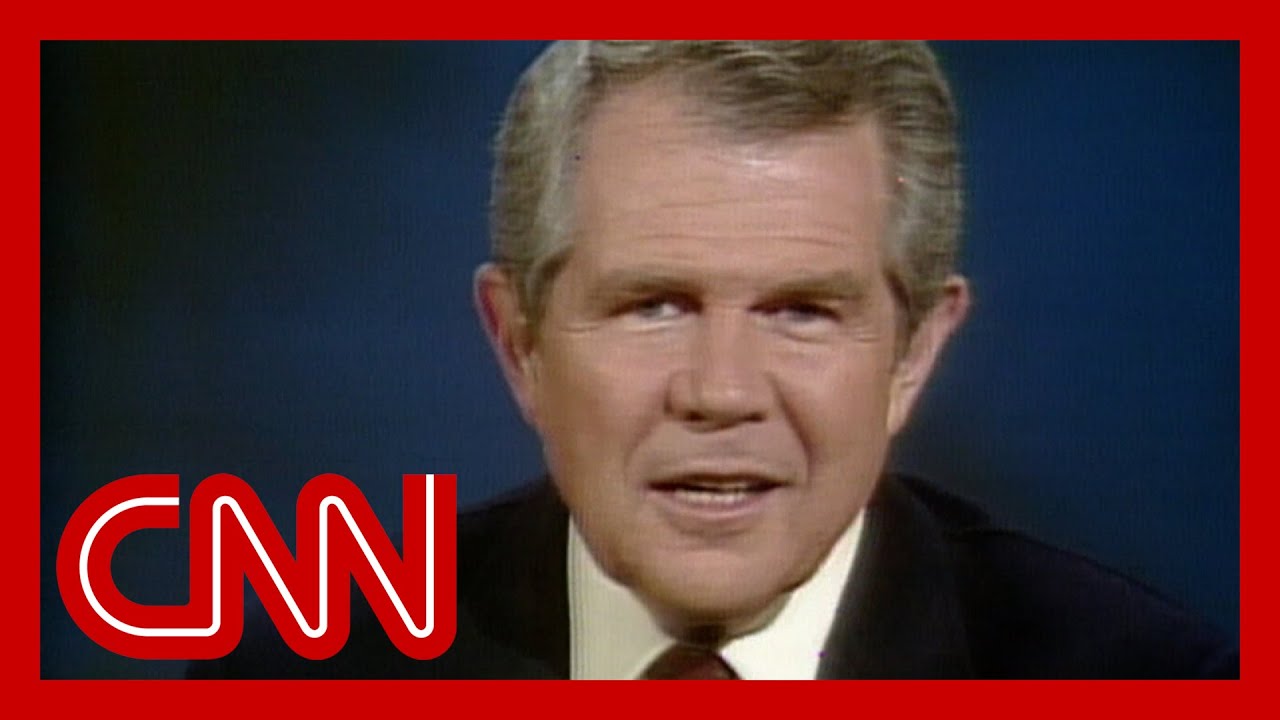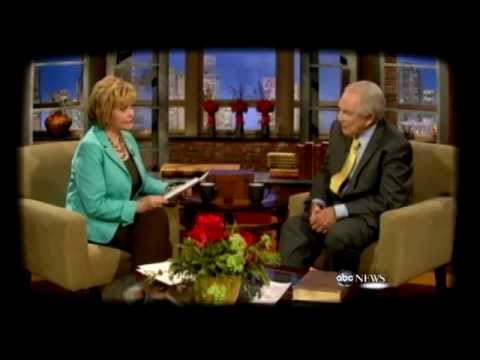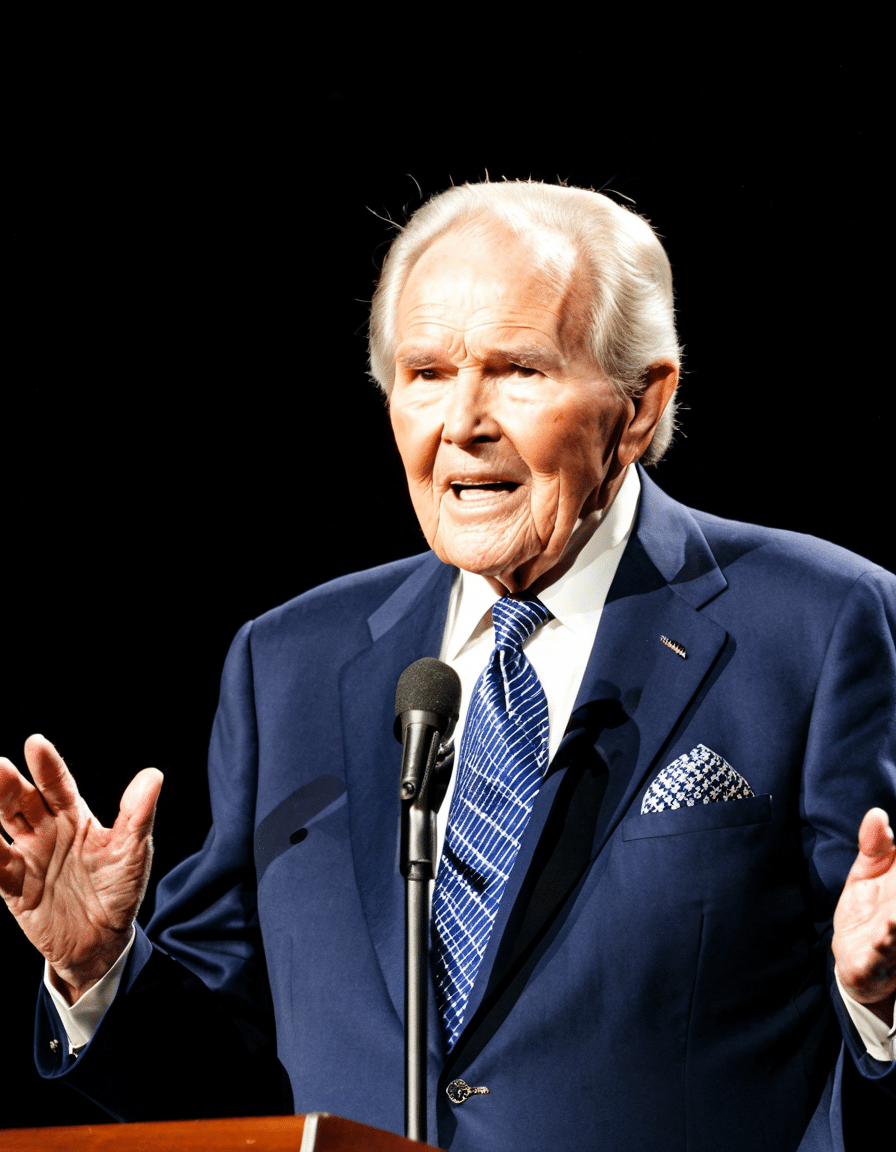
Pat Robertson The Controversial Life Of A Faith Leader
Pat Robertson remains a polarizing figure in American society. Born in 1930 as Marion Gordon Robertson in Lexington, Virginia, he grew up in a politically charged environment that sparked his lasting interest in both politics and faith. This blend of early experiences shaped Robertson’s belief system, leading him to create a legacy that intertwines evangelical Christianity with media and political engagement. Through his career, he was able to influence millions, often sparking both fervent support and intense criticism.
7 Key Phases in Pat Robertson’s Influential Career
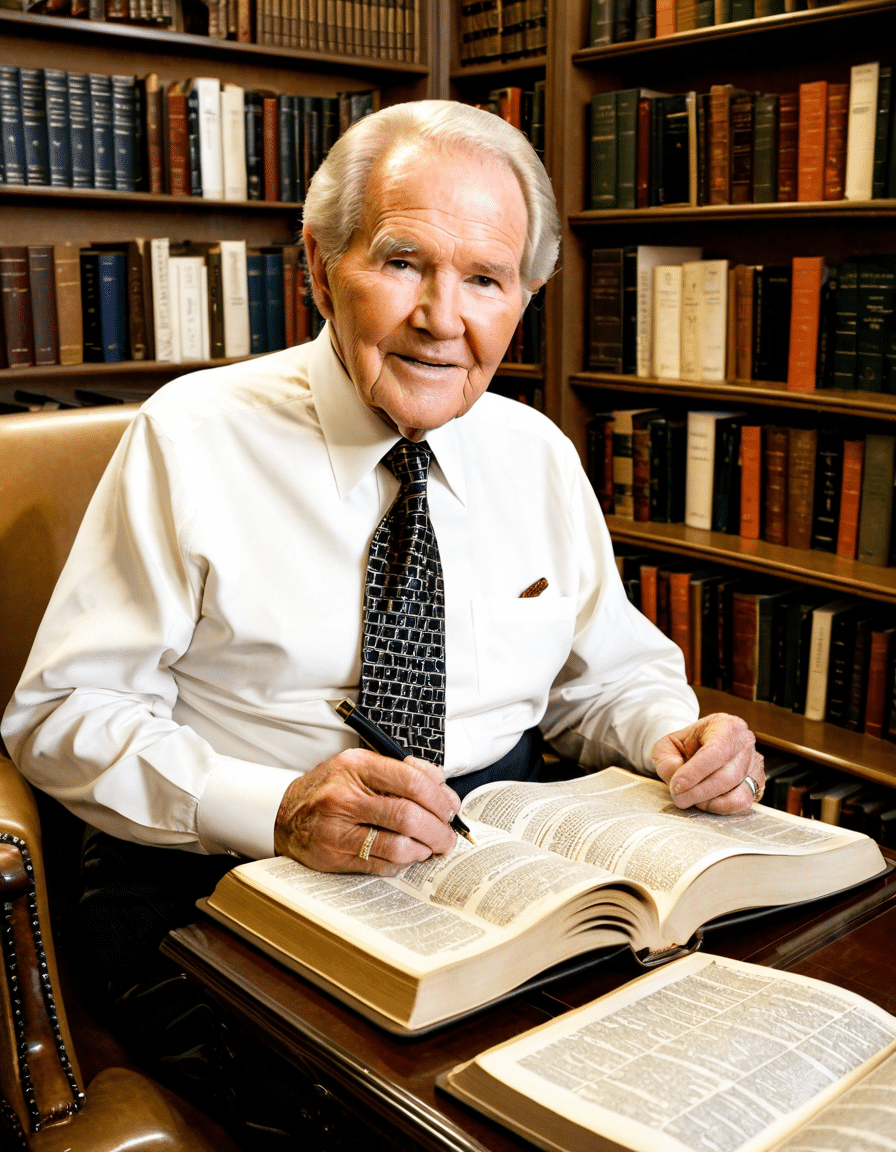
1. Early Years and Foundational Beliefs
Pat Robertson’s upbringing played a significant role in forming his worldview. Raised in an influential family, he was exposed to the intricacies of both politics and religion from a young age. His education at Yale University honed his critical thinking, while his time at the New York Theological Seminary solidified his evangelical worldview. Here, he discovered the potential of the media to communicate religious messages, emphasizing a blend of faith and societal engagement.
These foundational years set the stage for his future endeavors, merging the message of faith with public life in ways not seen before. Robertson’s belief that America was destined for a unique place in the world echoed throughout his career, which frequently included strong undertones of patriotism alongside his spiritual messages.
2. The Birth of CBN and the 700 Club
Robertson’s first foray into television led to the founding of the Christian Broadcasting Network (CBN) in 1960. CBN aimed to reach people with a new kind of religious programming, ultimately starting “The 700 Club.” This show revolutionized how faith was represented on screen, laying the groundwork for future evangelical media.
Through “The 700 Club,” he fused religion with politics, commenting on societal issues from a Christian perspective. Robertson’s platform amplified his influence beyond church walls, creating a space where faith-driven opinions could reach millions. By capitalizing on the burgeoning medium of television, he set a precedent that would shape the future of religious broadcasting.
3. Political Aspirations and the 1988 Presidential Bid
In a bold move that would define a significant chapter in his life, Robertson entered the political arena in 1988 by launching a presidential campaign. Though he didn’t win the nomination, his bid was pivotal, signaling a new era where religion and politics became intricately linked in American public life.
Robertson’s campaign galvanized a segment of the Religious Right, showcasing the growing power of evangelical voices within politics. His efforts not only mobilized supporters but also sparked counter-movements, reflecting a nation grappling with faith’s role in governance. This intersection between politics and religion would set the stage for many contemporary conversations about leadership in America.
4. Controversial Statements and Public Reactions
Throughout his career, Robertson was notorious for his outspoken views, which oscillated between prophetic and incendiary. His claims, such as stating that natural disasters were a sign of divine punishment, often drew sharp criticism. These remarks showcased the risks taken by faith leaders who stepped into the public limelight, reflecting sentiments similar to polarizing figures like Clyde Barrow and Gary Hart.
Public reactions varied widely; supporters lauded him for his boldness, while detractors argued that he muddied the lines between faith and fanaticism. This tension highlighted the challenges faith leaders face in the media, where their words can echo far beyond their original intentions, deeply influencing public discourse.
5. Philanthropy and Global Outreach
Pat Robertson’s influence extended beyond the realm of broadcasting and politics. He founded Operation Blessing International, which dedicated itself to humanitarian efforts around the globe. The organization’s objective was to provide disaster relief and essential aid, symbolizing Robertson’s commitment to charity.
However, his philanthropic endeavors weren’t devoid of controversy. Allegations of misusing funds and questionable project choices followed Operation Blessing, stirring debates reminiscent of issues faced by other public figures, like Glenn Ford. These controversies often overshadowed his intentions, leading to discussions about the accountability of faith-based organizations.
6. Criticism and Support from the Church Community
Within the Christian community, Robertson has been both criticized and supported in equal measure. Some view him as a groundbreaking figure whose influence has shaped evangelicalism, while others decry his polarizing opinions as harmful to the faith’s reputation. This division underscores a broader dialogue about the role of faith in modern society, reflected in contemporary figures like Danny Dyer and Martin Freeman, who navigate similar waters with their own unique perspectives.
Ultimately, these divergent views show the complexities within religious communities, where personal beliefs can clash with institutional representations. This ongoing debate continues to evolve, illustrating how faith leaders grapple with societal issues that impact both their communities and broader cultural narratives.
7. Legacy and Continued Influence
Even after stepping back from public life, Pat Robertson’s impact remains evident. His innovative approach to merging faith with activism and media set a benchmark for subsequent evangelical leaders. The principles he championed, intermingling religion with real-world engagements, continue to influence discussions within faith communities.
Robertson’s legacy also highlights the advent of new forms of religious expression that can challenge traditional norms. His methods reshaped how faith is represented in popular media and spurred the growth of religious broadcasting that caters to a public hungry for spiritual content. This endeavor continues, evolving with the changing landscape of American society.
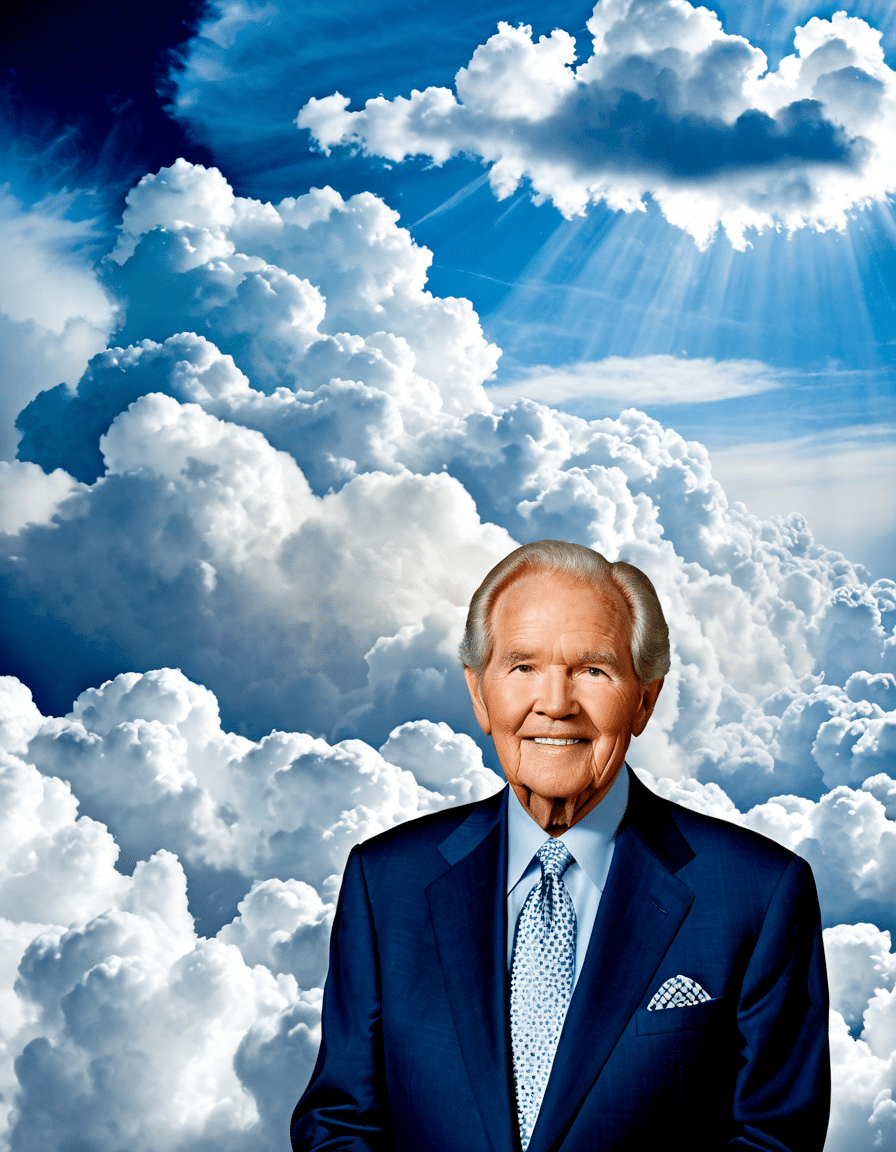
The Interplay of Faith, Politics, and Media: Pat Robertson’s Lifelong Impact
Reflecting on Pat Robertson’s life offers a unique perspective into the intricate relationship between religion and politics today. His career exemplifies a sustained effort to leverage media for a faith-driven agenda, redefining evangelical outreach through a television lens.
From his early days with CBN, Robertson articulated a vision of American exceptionalism rooted in Christian doctrine. This perspective resonates through modern evangelical leaders who adopt similar strategies, albeit with varying degrees of his controversial methods.
As we consider Robertson’s influence, it’s crucial to acknowledge the broader cultural shifts he symbolizes—notably, how faith can galvanize action, whether in humanitarian outreach or political campaigning. The ideological battles that marked his career underscore the ongoing difficulties faith leaders face as they maneuver through the socio-political landscape.
Ultimately, Pat Robertson’s controversial life exemplifies the enduring power of media in shaping public opinion and highlights the ways religious narratives continue to modify societal norms and values. His legacy persists, serving both as a beacon and a warning for future faith leaders navigating the complexities of influence in an increasingly connected world.
By understanding Robertson’s journey, we can glean insights into the evolving dialogue surrounding religion, politics, and media, providing valuable reflections for anyone engaged in the intersecting realms of faith and community.
In this context, Pat Robertson’s life offers more than just a narrative; it serves as a critical case study for the evolving role of faith leaders in the public sphere, mirroring many contemporary challenges faced by figures like Owen Hart and Gary Sheffield. The impact of figures like Robertson will continue to inform our discussions as we seek to understand the intertwined nature of faith and everyday life in America.
Pat Robertson: The Controversial Life of a Faith Leader
Early Days and Rise to Fame
Pat Robertson isn’t just a household name in religious circles; he’s a figure who’ve caused quite a stir over the years. His journey began with humble roots, growing up in Virginia where his father was a U.S. Senator. But did you know that aside from his religious pursuits, Robertson has dabbled in numerous ventures? He founded the Christian Broadcasting Network (CBN) in 1960, which became a backbone for his ministries and a platform for his opinions. Much like the layered character of Shinobu from Demon Slayer, who has both light and dark aspects, Pat’s career is equally multifaceted, merging faith with political ambitions and controversies.
Political Ambitions
Robertson’s foray into politics was marked by a presidential run in 1988, a bold move that put him on the national stage. While he didn’t secure the nomination, his campaign attracted a notable following and highlighted the intersection of faith and governance—an area that’s often contentious. Some might say his journey was as unpredictable as the plot of an anime Op mc (original protagonist), with twists and turns that kept both supporters and critics engaged. The persistent has been, whether his influence tips the scale more toward social good or division—and that’s a conversation that still echoes today.
Interests Off the Pulpit
Besides his spiritual endeavors, Robertson was known for embracing the entertainment industry in various ways. He produced films, including “The Last Ounce of Courage,” reflecting his beliefs. In a way, he carved out a niche similar to characters like Slade Wilson, who juggle their personal codes with public personas. On the flip side, controversies have often overshadowed his cinematic pursuits, such as the allegations surrounding various Kkvsh leak that have sparked discussions about privacy and morality in the spotlight. Robertson’s life brings to light how outside recognition can lead to scrutiny, much like the limelight faced by rising stars like Kimberley Crossman.
In his later years, Robertson even embraced the tech world, often discussing the significance of modern media in spreading faith. He even launched platforms and programs to keep pace with the new digital era, almost like how BMO from Adventure Time adapts and utilizes technology to bring joy. Through all these facets of his life, Robertson remains a figure of intrigue, captiving an audience that’s always eager to hear his next move, much like the anticipation surrounding a fresh Mr. Nice Guy episode.
In this curious mix of faith, politics, and media, Patrick Robertson’s legacy remains a fascinating point of discussion—one that invites both admiration and critique. So whether you love him or hate him, there’s no denying he’s left an indelible mark on American culture.
